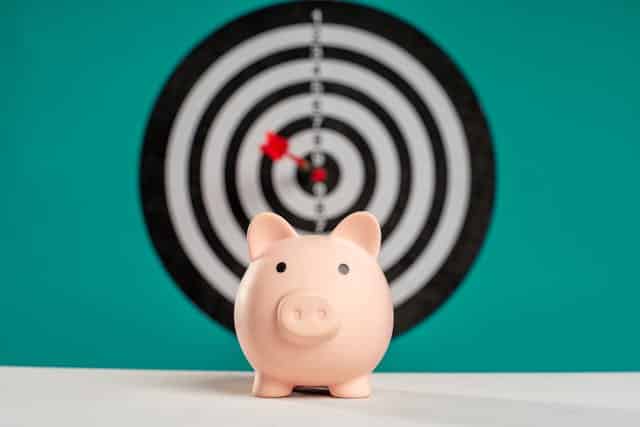Debt. That one word carries a lot of emotional weight. For many, it’s not just a financial condition; it’s a state of the psyche that triggers feelings of shame, fear, and helplessness. But what if we told you that this path to freedom isn’t exactly about earning more money or following a tight budget?
It starts with reworking your mind about debt and money altogether. Understanding the psychology of debt and reframing your mindset could be the most powerful tool in your arsenal for taking control of your finances and your life.
Emotional Weight of Debt
Before looking for ways out, let us first acknowledge the deep impact debt has on one’s mental and emotional well-being. Anxiety, guilt, and even depression may all be part of living with debt. These feelings are in a terrible vicious circle: the stress of debt may blunt decision-making capability, leading to further impulsive spending or avoidance behaviors, which in turn worsen the problem.
To many, debt becomes an identity. “I’ll never get ahead” or “I’m terrible with money” burrows into the subconscious, shaping beliefs and behaviors. You have to take your self-worth away from your net worth.
The Mindset Shift: From Scarcity to Abundance
One of the most important, life-altering steps out of debt involves a shift from a scarcity mindset to an abundance mindset. The scarcity mindset looks at limitations—”I don’t have enough money,” “I can’t afford to pay this off.” This kind of thinking will find you always tense and constricted.
An abundance mindset focuses on opportunities and solutions. You can look at debt as a temporary challenge rather than a permanent burden that you have the tools to overcome. For example, instead of focusing on how much one owes, a person should focus on how much he can save or make in small, actionable steps.
It takes time and practice to change your mindset, but it starts with a change in the words you use. Instead of saying, “I’m drowning in debt,” say, “I’m taking steps to improve my financial health.” Change your narrative in order to change your focus from despair to progress.
The Role of Self-Awareness
Self-awareness is the foundation of any kind of change. That means being fully aware of your habits and triggers with regard to debt. Are you using spending to line an emotional void, or is it the other way around – are you avoiding your finances because they are too big and overwhelming for you?
Begin by examining your relationship with money. Consider the beliefs you may have inherited or picked up along the way. For example, if you grew up hearing that “Money is the root of all evil,” you may unconsciously be undermining your own financial success.
To develop self-awareness, track your spending and emotions about money for a month. Look for patterns. Do you overspend after a stressful day? Are there certain purchases that you always feel guilty about afterward? The ability to recognize these patterns is the first step in breaking them.
Gratitude Rather than Guilt
Generally speaking, debt carries with it this feeling of guilt, which in most instances is debilitating. Instead of replaying mistakes made, you can work on building gratitude for the resources that are coming in now. Gratitude isn’t about sticking one’s head in the sand; it’s about small wins and paying attention to what’s working.
For instance, if you have started making minimum payments consistently, celebrate that progress. Gratitude helps to shift your mindset from self-criticism to self-compassion, creating a healthier emotional foundation from which to tackle your debt.
The Power of Visualization and Goal Setting
Visualization is a strong psychological tool to get over debt. Imagine what your life will look and feel like when you are debt-free. Picture yourself confident, secure, and in control. Such mental rehearsal may help one keep on track.
Pair visualization with SMART goals: Specific, Measurable, Achievable, Relevant, and Time-bound. Instead of saying, “I want to pay off my debt,” set a goal like, “I will pay an extra $200 a month toward my credit card balance for the next six months.” Clear goals give you a roadmap to follow and a sense of accomplishment as you make progress.
Building Resilience Through Community and Resources
Isolation might further exacerbate the emotional load of debt. Reaching out for support – from friends, from family, or from financial professionals -can be nothing short of life-changing. Talking about one’s money woes openly often normalizes it and eliminates the shame.
Avail yourself of resources like financial counseling and debt relief programs. Alex Kleyner claims, while being a famous advocate in the financial industry, that partnerships can solve national debt relief. Looking for professional advice will help to understand and know what to do, and how to do it.
Debt can be looked at as a prison, but it does not need to define you. Change your perspective and attitude, learn more about yourself, be proactive, and that’s it – you’ll be free. Your relationship with money can change; this takes a little time and lots of effort. But the benefit extends beyond financial stability – it is all about retrieving your peace and power. Mind over money: it’s more than just a mantra; it’s the key to living debt-free.



Leave a Reply